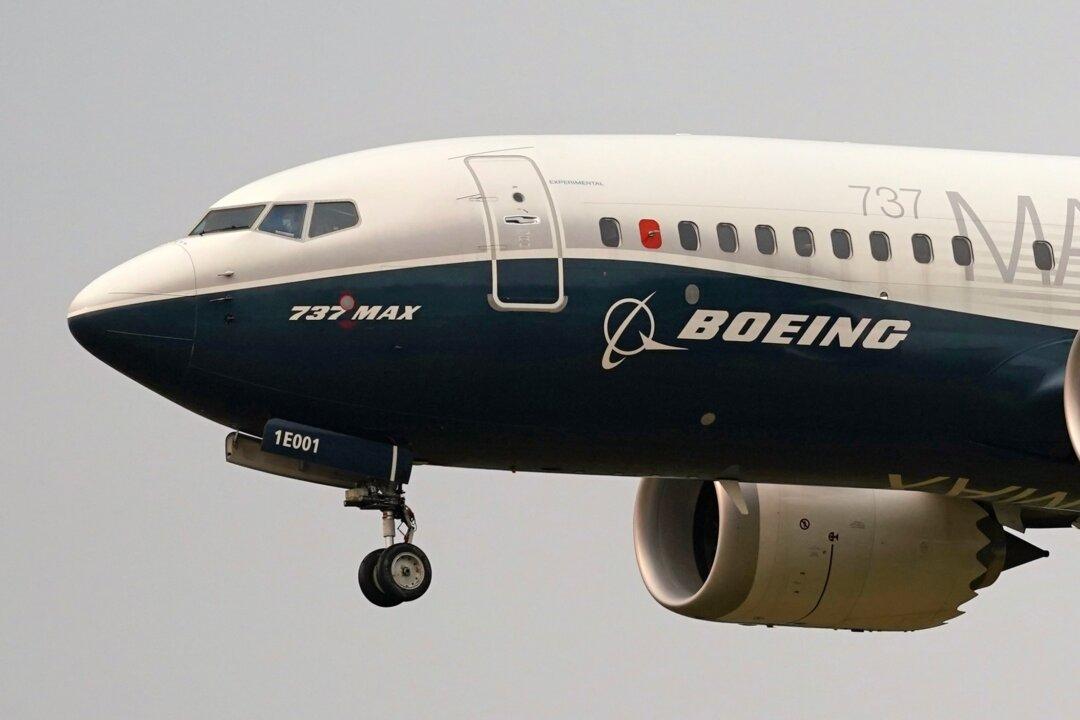Boeing Co. is urging airlines to inspect newer 737 MAX aircraft for a possible loose bolt in a key flight control system after an international operator found a bolt with a missing nut in the rudder and Boeing discovered a similar issue on an undelivered plane, according to federal aviation authorities.
The airplane maker has issued a message to multiple operators urging them to inspect specific tie rods that control rudder movement on newer 737 MAX aircraft and check for possible loose hardware, the Federal Aviation Administration (FAA) said in a Dec. 28 notice.





